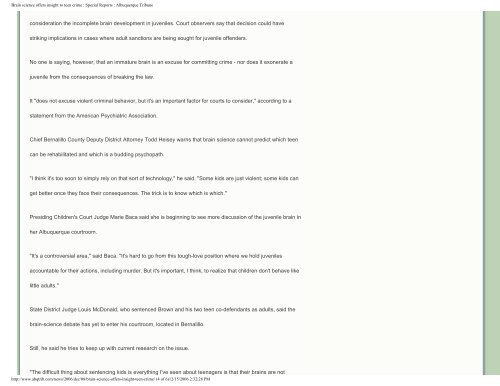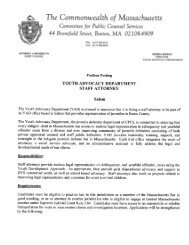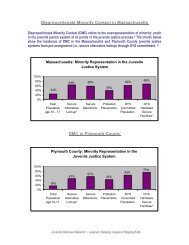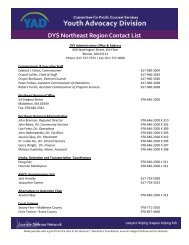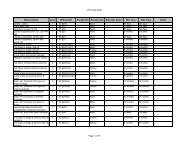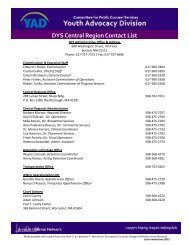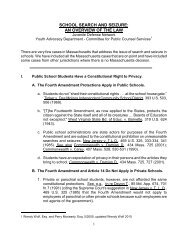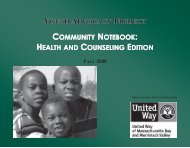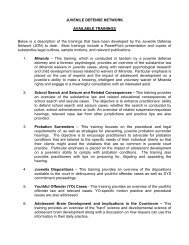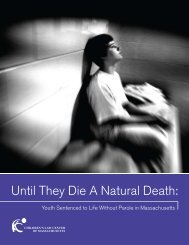States rethink 'adult time for adult crime' - the Youth Advocacy Division
States rethink 'adult time for adult crime' - the Youth Advocacy Division
States rethink 'adult time for adult crime' - the Youth Advocacy Division
Create successful ePaper yourself
Turn your PDF publications into a flip-book with our unique Google optimized e-Paper software.
Brain science offers insight to teen crime : Special Reports : Albuquerque Tribune<br />
consideration <strong>the</strong> incomplete brain development in juveniles. Court observers say that decision could have<br />
striking implications in cases where <strong>adult</strong> sanctions are being sought <strong>for</strong> juvenile offenders.<br />
No one is saying, however, that an immature brain is an excuse <strong>for</strong> committing crime - nor does it exonerate a<br />
juvenile from <strong>the</strong> consequences of breaking <strong>the</strong> law.<br />
It "does not excuse violent criminal behavior, but it's an important factor <strong>for</strong> courts to consider," according to a<br />
statement from <strong>the</strong> American Psychiatric Association.<br />
Chief Bernalillo County Deputy District Attorney Todd Heisey warns that brain science cannot predict which teen<br />
can be rehabilitated and which is a budding psychopath.<br />
"I think it's too soon to simply rely on that sort of technology," he said. "Some kids are just violent; some kids can<br />
get better once <strong>the</strong>y face <strong>the</strong>ir consequences. The trick is to know which is which."<br />
Presiding Children's Court Judge Marie Baca said she is beginning to see more discussion of <strong>the</strong> juvenile brain in<br />
her Albuquerque courtroom.<br />
"It's a controversial area," said Baca. "It's hard to go from this tough-love position where we hold juveniles<br />
accountable <strong>for</strong> <strong>the</strong>ir actions, including murder. But it's important, I think, to realize that children don't behave like<br />
little <strong>adult</strong>s."<br />
State District Judge Louis McDonald, who sentenced Brown and his two teen co-defendants as <strong>adult</strong>s, said <strong>the</strong><br />
brain-science debate has yet to enter his courtroom, located in Bernalillo.<br />
Still, he said he tries to keep up with current research on <strong>the</strong> issue.<br />
"The difficult thing about sentencing kids is everything I've seen about teenagers is that <strong>the</strong>ir brains are not<br />
http://www.abqtrib.com/news/2006/dec/08/brain-science-offers-insight-teen-crime/ (4 of 6)12/15/2006 2:32:28 PM


